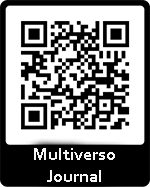Human rights, migration and Latin American unity
DOI:
https://doi.org/10.46502/issn.2792-3681/2024.7.8Keywords:
Human rights, unity, migration, trade, protection of human dignity.Abstract
The objective of this hermeneutic essay was to reflect about Latin American migrants in the 21st century from a human rights perspective. All people possess inalienable fundamental rights and freedoms that are universally recognized in international instruments. Migrants, that is, people who move from the territory of one State to the territory of another, due to situations that endanger their subsistence, or in search of better living conditions for work or study opportunities, among others, should enjoy a unitary legal regime that guarantees the protection and assurance of these fundamental rights and not casuistic mechanisms that generate injuries to these subjects. It is concluded that this protection should be focused on promoting an active and sustained defense of a democratic framework that recognizes, values and respects without hesitation that every human being is a person. Likewise, the rules of international trade must be unitary, uniform, and effective to achieve decent socioeconomic conditions in the States that significantly reduce migration in Latin America.
References
Alvares, A. (2014). Los derechos humanos y el comercio internacional. Revista da Universidade Vale do Rio Verde, Três Corações, 12(1), 490-503.
Asamblea General de Naciones Unidas. (2018). La Agenda 2030 y los Objetivos de Desarrollo Sostenible Una oportunidad para América Latina y el Caribe. Santiago de Chile: Cepal.
Byrne, J. (1976). Orígenes del Panamericanismo. Serie Sesquicentenaria del Congreso de Panamá. Caracas: Gobierno de Venezuela.
Champeil-Desplast, V. (2021). Libertades económicas, Derechos Humanos y violencia social: ¿cuáles articulaciones? Paris: Universidad de París x-Nanterre. https://www.uexternado.edu.co/wp-content/uploads/2021/09/Libertades-economicas-Derechos-Humanos.pdf
Estulin, D. (2020). Megapolítica Transformación global y guerra de potencias. Caracas: Editor organización grafica Capriles CA.
Gadamer, H.-G. (1993). Verdad y método. Salamanca: Ediciones Sígueme.
Habermas, J. (1991). Ética del discurso. Notas sobre un programa de fundamentación. Conciencia Moral y Acción Comunicativa. Madrid: Ediciones Península.
Hegel, G. (1980). Propedéutica filosófica. Caracas: Equinoccio.
Padilla, J. (2023). La Geopolítica de los Derechos Humanos 2.0. Fundación para el debido proceso. https://dplfblog.com/2023/06/08/la-geopolitica-de-los-derechos-humanos-2-0/
Popper, K. (1945). La sociedad abierta y sus enemigos. Barcelona: Editorial Digital Titivillus.
Reyes, L. (2018). Venezuela: la migración del desespero. El Tiempo. https://www.eltiempo.com/datos/quienes-son-y-por-que-se-van-los-venezolanos-en-fuga-189844
Sahd, J., Zovatto, D., & Rojas, D. (2024). Riesgo político América Latina 2024. Santiago de Chile: Centro UC Estudios Internacionales.
Santiago, C. (1989). Ética y Derechos Humanos. Madrid: Editorial Ariel, S. A.
Savater, F. (1998). Ética como amor propio. Madrid: Mondadori.
Published
How to Cite
Issue
Section
License
Copyright (c) 2024 Tulia G. Peña Alemán, Irasema Vílchez de Quintero, Adelso Rincón Romero

This work is licensed under a Creative Commons Attribution 4.0 International License.
The authors who publish in this journal agree to the following terms:
The authors retain copyright and guarantee the journal the right to be the first publication where the article is presented, which is published under a Creative Commons Attribution License, which allows others to share the work prior to acknowledgment of the authorship of the article. work and initial publication in this journal.
Authors may separately enter into additional agreements for non-exclusive distribution of the version of the work published in the journal (for example, placing it in an institutional repository or publishing it in a book), with an acknowledgment of its initial publication in this journal.



















